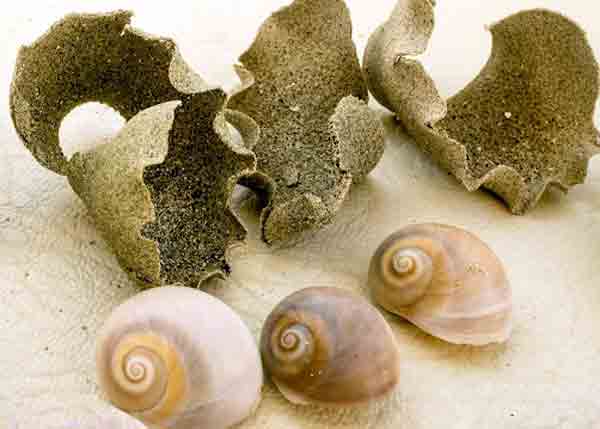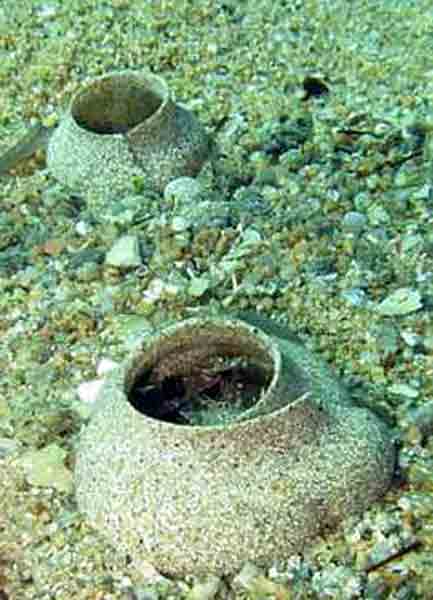Ovature Neverita josephinia shell cm 3-4 Seashell Gastropoda Sea Snail Moon Snail Necklace Shell, fragment.
Family: Naticidae.
Common name: Josephine's Moon Snail.
Syn. Natica josephinia, Natica philippiana, Neverita olla, Neverita philippiana.
The shells are available individually or in batches, at this link.
Ribbon-shaped sandy structure, very thin, with the characteristic edge on the external side, well compact and made up of a myriad of cells. This is the typical egg mass of

Neverita josephinia, a gastropod mollusc that lays its eggs in the spring period, between March and June. Along the coast, near the shoreline, precisely where the water is very shallow, these peculiar formations of organic substance can be found, beached after sea storms, reproductive structures defined with the scientific term of ovature or even ovigerous capsules in the case of more complexes of other marine animals. They are characteristic of each species and have strange, particular shapes, such as a case, a bag, a spiral, a ribbon, etc.
These ribbons of sand are
very fragile and thin as they are composed of mucus

mixed with sand, and as they dry they become
extremely crumbly. The intact shape is circular, but the waves tend to break them up and bring
fragments of various sizes to the shore, like the ones we propose.
The gastropod that produces it, Neverita josephinia, more commonly known as Buttock (in italian) or Moon Snail, has a slightly flattened, globose and smooth shell, of a delicate pale pink, from which its italian common name probably derives. This species, common in the Mediterranean up to 10 meters deep, lives in calm, nutrient-rich waters on sandy bottoms. The mollusk mixes its eggs with sand and a mucus secreted by it and then lays them on the bottom, between March and June. Contrary to their graceful form, Naticidae are infallible and voracious predators; in fact, they are responsible for the perfect little holes that we can see on the shells of the valves that we find beached.



